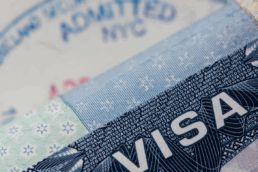A new U.S. Citizenship and Immigration Services (USCIS) policy goes into effect today and will provide adjudicators with more discretion to deny visa applications. USCIS is no longer required to issue a Request for Evidence (RFE) or Notice of Intend to Deny (NOID) when evidence submitted at the time of filing does not establish eligibility for the benefit sought; adjudicators can simply deny the application.
Background
On June 3, 2013, USCIS implemented a policy memorandum titled “Requests for Evidence and Notices of Intent to Deny,” which addressed policies for the issuance of RFEs and NOIDs when initial evidence falls short of establishing eligibility for the benefit sought. The memo established the “no possibility” policy and instructed USCIS adjudicators that a RFE should be issued unless there is “no possibility” that an application could be cured by the submission of additional evidence.
New Policy
The new policy is based on a strict reading of 8 CRF 103.2(b)(8), which states that an adjudicator may either deny an application or request/issue an RFE or a NOID when the record does not establish eligibility. Essentially, the new policy is set to restore an adjudicator’s discretion established under the regulations by rescinding the 2013 “no possibility” rule. The ultimate goal, however, is not to increase the likelihood of a denial; rather, it aims to speed up the adjudication process by allowing visa officers to dismiss “frivolous or meritless claims” that result in slower processing time for all applications. This policy is intended to discourage frivolous or substantially incomplete filings used as “placeholder” filings and encourage applicants to be diligent in collecting and submitting required evidence. USCIS does not intend to penalize filers for innocent mistakes or misunderstandings of evidentiary requirements.
If you have questions on this, please contact Berardi Immigration Law to speak to one of our attorneys today!
Ready to have Berardi on your side?
Whether you’re a business looking to hire or a professional hoping to relocate, immigration law can be complicated. But you don’t have to do it alone. Put our experience to work for you.



